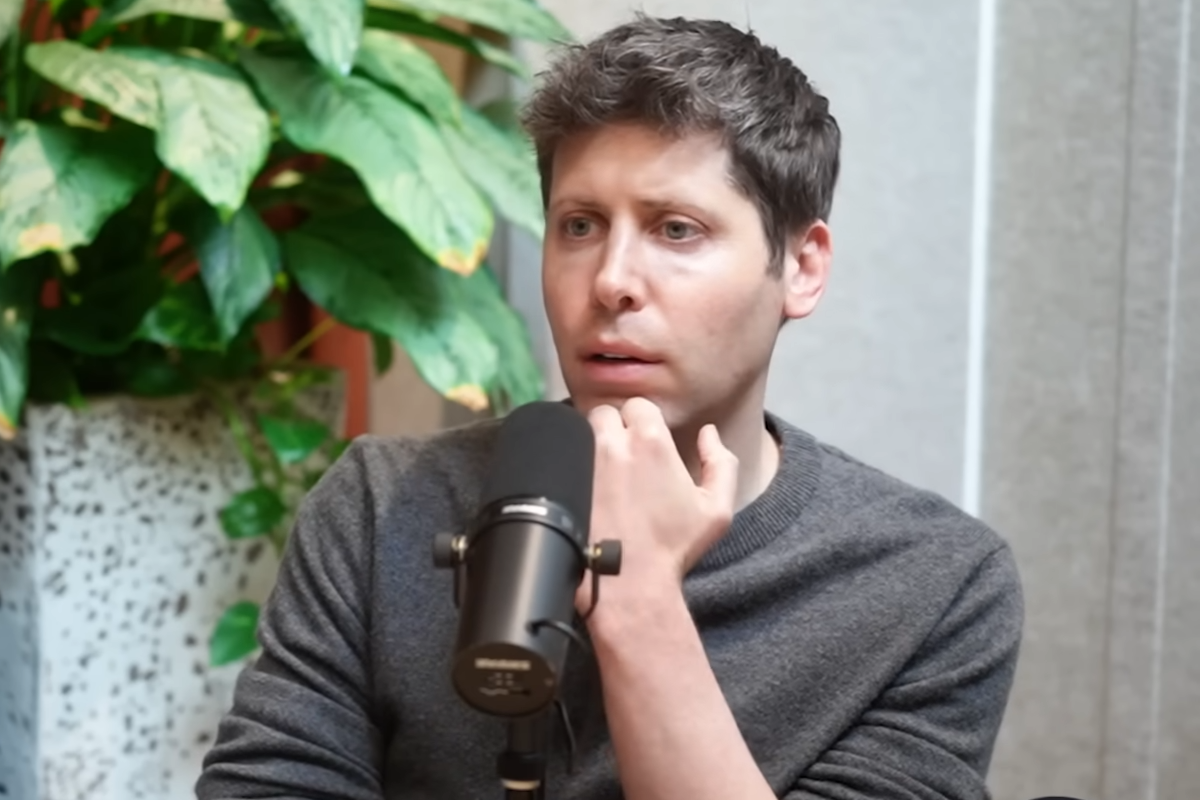OpenAI CEO Sam Altman more or less confirms work on AI search engine

Key Points
- OpenAI CEO Sam Altman likes the idea of combining LLMs with search to reinvent Internet search. But he doesn't want to create another Google, "just" a better way to help people find information online.
- Integrating language models with Web search is a cool thing that no one has solved yet, Altman says. He believes that OpenAI does not need to rely on advertising to do so. That way, ChatGPT users know that the answers are not influenced by advertisers.
- OpenAI is already said to be developing its own web search product to compete with Google, based in part on Microsoft's Bing search. Google also sees a possible future in AI agents that independently perform tasks on the web as a complement to traditional search. However, there are still many unanswered questions, such as increased costs, liability, and regulation.
OpenAI CEO Sam Altman finds the idea of combining ChatGPT with search capabilities to reinvent Internet search exciting. But he has no intention of creating another Google.
In an interview with podcaster Lex Fridman, Altman indirectly described the way Google currently presents search results as outdated. He said he is not interested in copying Google's model, but rather wants to reinvent search.
"The thing that’s exciting to me is not that we can go build a better copy of Google search, but that maybe there’s just some much better way to help people find and act on and synthesize information," Altman said.
ChatGPT is already an example of some use cases for an alternative, and OpenAI hopes to expand that to many more use cases. It's about helping the user get the answer or information they want, generating it in some cases, summarizing it in others, or referencing it in still others, Altman said.
Building a better search service than Google is a huge challenge, both technically and in terms of branding and ecosystem. "I don't think the world needs another copy of Google," Altman said.
Asked what would be cooler than the standard Google clone, Altman said he's interested in combining language models with Internet search capabilities, and OpenAI is interested in how to do that well.
"That would be an example of a cool thing," Altman said. "The intersection of LLMs plus search, I don't think anyone has cracked the code on yet. I would love to go do that. I think that would be cool."
Altman thinks you can do AI search without ads
Altman is interested in doing just that. He also believes that OpenAI does not need to rely on advertising for aesthetic reasons. Advertising has been necessary on the Internet for various reasons to get it off the ground, but it is a temporary phenomenon, Altman believes.
He likes the fact that users pay for ChatGPT and know that the answers are not influenced by advertisers. It's easy to imagine a dystopian future where ChatGPT tells you to buy this or that product or go on vacation there, Altman says.
OpenAI is reportedly developing its own web search product to compete with Google. The product is said to be partly based on Microsoft's Bing search, although it is not yet clear whether the web search will be a separate product from ChatGPT or already integrated into Bing.
ChatGPT's current web search is still slow and unreliable, so a separate, optimized search product from OpenAI could make sense. Microsoft is also interested in taking market share away from Google in the search engine market. Microsoft CEO Satya Nadella's vision of doing this with chatbots that automatically search the web has not yet been realized.
OpenAI's web search product could be linked to an AI agent that independently performs tasks on the Internet, such as reserving movie tickets. Google also sees a possible agent future as a complement to traditional search.
Google itself has probably the best AI search approach at the moment with its Search Generative Experience. But even here, many questions remain unanswered: for example, about the higher costs or liability of AI answers, and whether providers of such services might themselves become media companies, subject to corresponding rules and laws, and how this changes the competitive situation with other media companies.
Google itself is likely to have little interest in jeopardizing its existing search engine monopoly.
AI News Without the Hype – Curated by Humans
As a THE DECODER subscriber, you get ad-free reading, our weekly AI newsletter, the exclusive "AI Radar" Frontier Report 6× per year, access to comments, and our complete archive.
Subscribe now